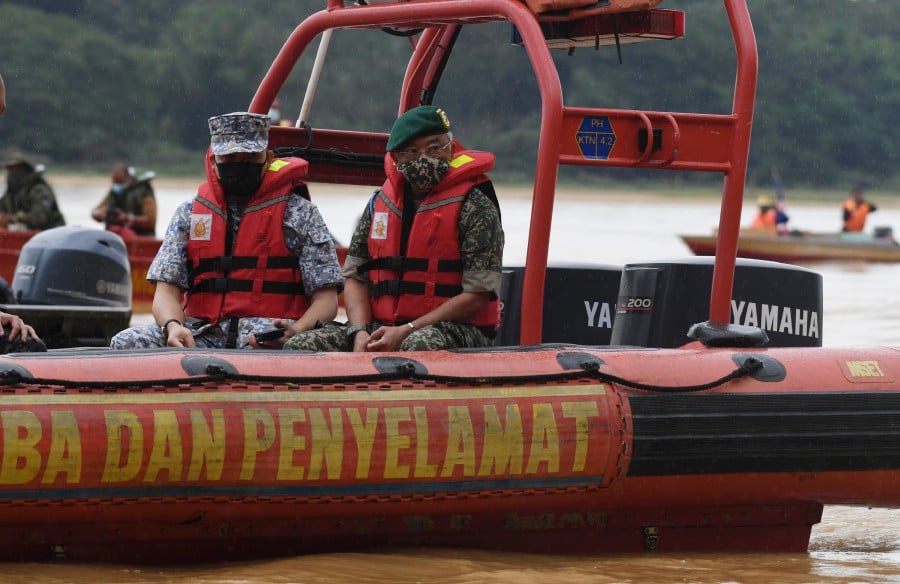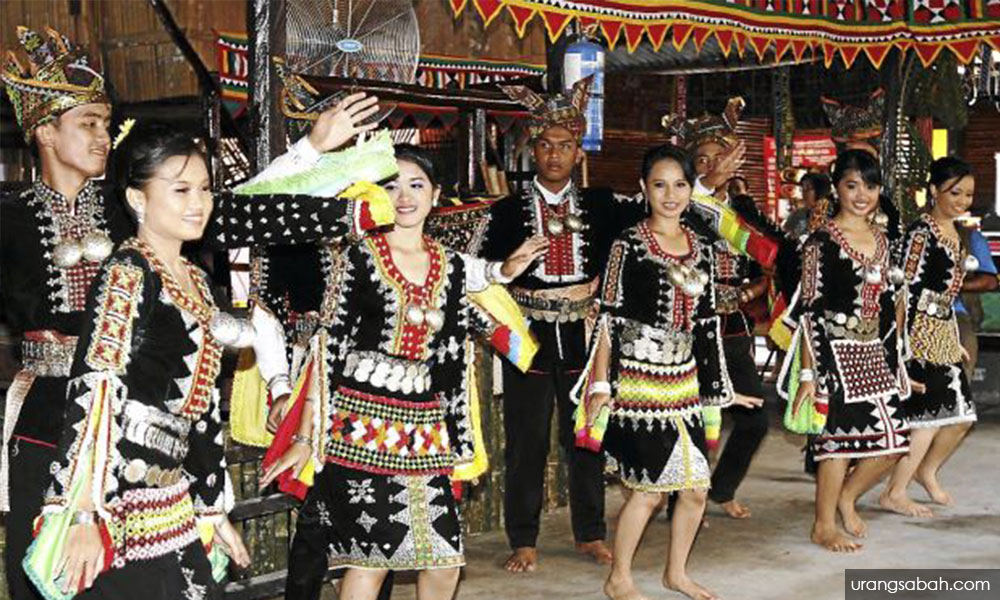Today, Malaysia is celebrating 58 years of independence as a federation. Yet overall, there is not much to celebrate given the raging pandemic and increasing voices questioning the very essence of the federation.
Nation-building and national identity, the essential programme in all the countries in Southeast Asia, appears to be stalled in Malaysia as more of its citizens are asking the most basic question: “What is a Malaysian identity and what is Malaysia?”
This may be an odd question to ask after six decades of nation-building, but it is a central query of contemporary Malaysia and it is rooted in the two most contentious issues related to nation-building and identity in contemporary Malaysia.
Malay-state or Malay-Islamic state
The first of these is the core connotation of Malaysia. For many in the Malay community, it’s a no-brainer – Malaysia is a Malay state. After all, before the federation of Malaysia, there was “Tanah Melayu”, or the “Land of the Malays”. Even the colonial overlords accepted that Malaya belonged to the indigenous Malays and largely recognised the sovereignty of the nine Malay sultans.
Non-Malays, basically the Indians and the Chinese, were only brought into Malaya in large numbers by the British in the 19th century for economic exploitation of the land. After World War II, it became impossible to send them back to India and China, so the British engineered an agreement with the Malay rulers to let them stay and obtain citizenship.
This is where the historical dispute starts. According to the Malay elite, Chinese and Indians were given citizenship on the condition that they recognised “Ketuanan Melayu” or Malay supremacy over Malaya. In other words, they recognised Malaysia as the “Land of the Malay”, meaning that Malays must always be first among equals.
In the political arena, the ideology of Malay Supremacy is the unspoken ‘social contract’. Many younger non-Malays who are born and raised in Malaysia think this is fundamentally and philosophically wrong. They cannot accept that they will be second-class citizens forever.
When the 1963 Constitution was adopted, Article 160 constitutionally defined an ethnic Malay as a Muslim as well. With the worldwide resurgence of Islam in the 1980s sweeping Muslim-majority countries, Malaysia has become more conservative in the past four decades as Islamisation of the country meant Islamic identity has slowly replaced the Malay identity.
These past two decades have seen the dramatic rise of political Islam as Malay politicians see religion as the most potent political weapon. This has led to a vocal Islamic minority calling for Malaysia to be declared an Islamic state and for the Constitution to explicitly declare Islam as the official religion.
At present, the wording in the Constitution is ambiguous: Article 3 (1) of the Malaysian Constitution provides: “Islam is the religion of the Federation; but other religions can be practised safely and peacefully in all parts of the Federation.”
However, non-Islamic religions already practice under a host of restrictions and proselytising to Muslims is actually an offence under Malaysian law.
The political tensions over the rise of political Islam have led many to conclude that the state is pushing to make Malaysia a Malay-Islamic state. The use of political Islam to further divide the population and to politically dominate non-Muslims has also led, ironically, to more regulations to control the personal behaviour of Muslims such as dress codes as the Islamists attempt to control non-Islamic religions in Malaysia.
In many instances, non-Muslim places of worship have been unnecessary burdened by bureaucratic red-tape and attempt to build non-Muslim places of worship were delayed or cancelled after politically motivated protests by Muslim groups.
In an infamous case, a judicial report in 2019 came to the conclusion that the Special Branch, the elite unit of the police force, was responsible for the disappearance of a Christian pastor Raymond Koh and a Syiah preacher Amri Che Mat.
The pastor was suspected of trying to convert several Malays while Syiah beliefs are deemed a national security threat. The police simply ignored the findings and the government largely sided with the police.
Thus, many non-Muslims in Malaysia think that when it comes to political Islam, the state will always take the side of the Muslims regardless of the law.
Malaysia Agreement 1963 (MA63)
The arguments over whether Malaysia is a Malay state, or a Malay-Islamic state becomes even more convoluted when one considers the Malaysia Agreement 1963 (MA63), the international legal instrument that created the federation.
The original federation consisted of Singapore, Malaya, North Borneo (now called Sabah) and Sarawak, though Singapore left just two years into the project.
Under MA63, the Borneo states were accorded a high degree of autonomy from the federal government, a point rooted in the fact that Sabah and Sarawak are very different from Malaya in terms of history, demography, religion, language and culture. Ethnic Malays are minorities in both states, which are located on the island of Borneo, far from the Malay peninsula.
However, despite assurances of autonomy, the general feeling among Sabahans and Sarawakians is that the federal government broke this promise and the reverse happened; for the past six decades, federal authorities centralised all the powers and, even worse, took most of the oil and gas resources from the Borneo states to develop Malaya, leaving the island states under-developed.
The Kadazan-Dusun Murut (KDM) and the Dayaks are the majority indigenous peoples of Sabah and Sarawak, respectively. They are firm that their forefathers agreed to form the federation with Malaya (and Singapore) on the understanding the Borneo states will have maximum autonomy from the federal government, including religious freedom.
The overwhelming majority of the KDM and Dayaks are non-Muslims and are uncomfortable with state-supported programmes to convert them to Islam. There is fear that once they become Muslims, they will lose their identity and be classified as “Malays”.
This fear is supported by empirical evidence in that many of the tribal peoples in Malaya and some KDM and Dayaks, once converted, are assimilated into the Malay community. Their children will be officially counted as Malays in the census data.
But the thing that most annoyed the people of Sabah and Sarawak is the insistence by the federal government that its political framework of dominance by Malay/Islam identity is implemented in the Borneo states.
Communal relations in the Borneo states were good before Malaysia and now there are signs that Islam is being used as a political weapon to divide the people. This has led to a vocal minority calling on Sabah and Sarawak to secede from the federation.
‘Midlife crisis’
If Malaysia was a person, that individual would probably suffer from a midlife crisis caused by identity issues. In this case, the identity issues are caused by the rise of political Islam and the Malay-Islamic supremacy ideology.
For the past 60 years, there has been a great reluctance among the Malay establishment to recognise the reality that Malaysia is a multiracial and multireligious state. Will things change in the coming years? Probably not.
Due to demographic changes, in 2050, Muslims will account for 73 percent of the population, up from the current 63 percent.
This will have unclear implications for a number of the questions that currently define Malaysian identity: Will this mean that Malaysia will be an Islamic state and no longer a Malay state? Will Islam replace the Malay identity? And then, what about the tension with Sabah and Sarawak?
There are no easy answers. What is clear is that Malaysia at 58 needs to have a national conversation about what it truly is. Forcing the population to accept a state-defined, ethnic-religious identity may not be the best way to bring about a united nation. - Mkini
JAMES CHIN is Professor of Asian Studies, University of Tasmania.
The above article was first published in southeastasiaglobe.com.
The views expressed here are those of the author/contributor and do not necessarily represent the views of MMKtT.

















